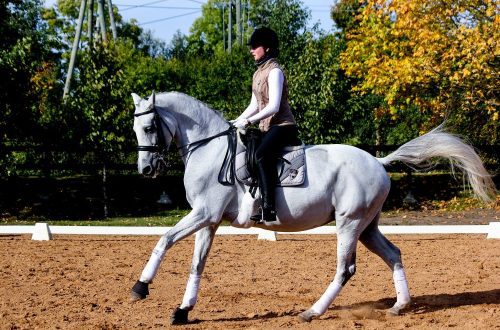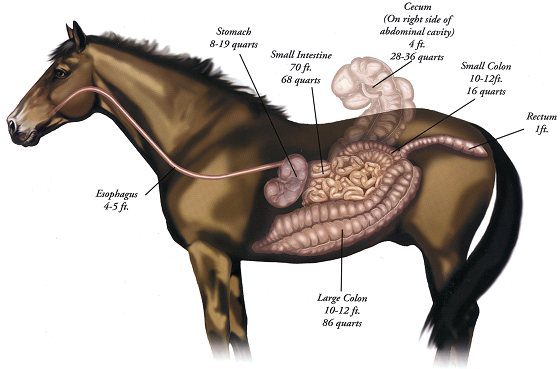
Colic in horses. Coprostasis
Coprostasis (also called “blockage”) is the overflow of individual sections or the entire large intestine with food masses. 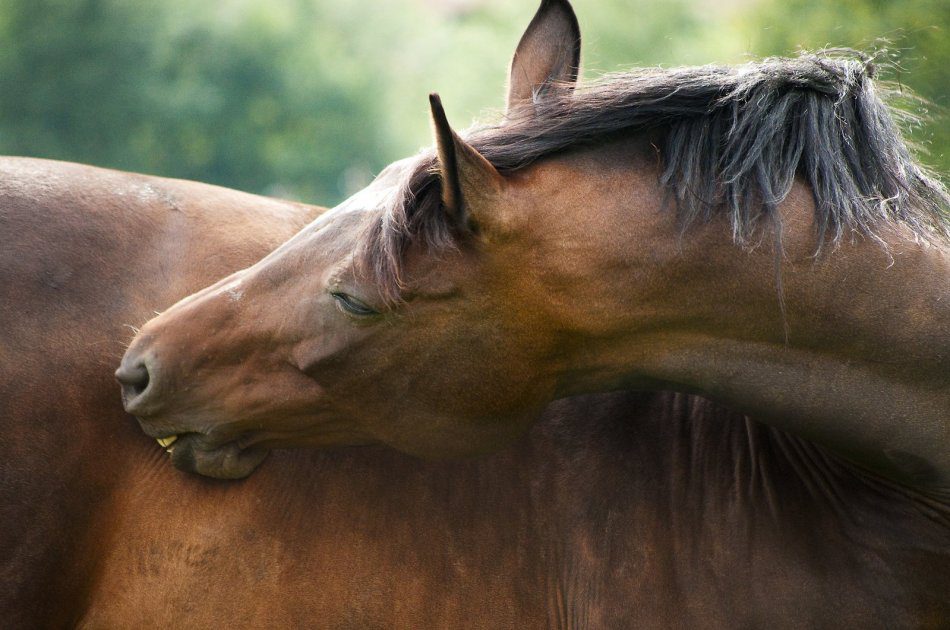
Contents
Causes of coprostasis and colic attack in horses
- Excessive amount of coarse, low-nutrient feed in the horse’s diet.
- Lack of vitamins in horse feed.
- Feeding dry food all year round, lack of juicy and green food in the horse’s diet.
- Insufficient drinking.
- Insufficient exercise.
- Diseases of the teeth.
- Old age.
- Weight loss due to other diseases (helminthiases, gastrofilosis, etc.)
Secondary coprostasis in a horse may be the result of paralysis and paresis of the rectum with narrowing or atony of the intestine.
Symptoms of coprostasis in a horse
- Periodically repeated bouts of anxiety – the so-called “silent colic”: the horse looks at the stomach, waves its tail, digs with its front leg, sometimes tries to lie down and lie down.
- The horse can stand “stretched” or take the “observer” position.
- Feces are rarely excreted or the horse stops defecating altogether. If the feces are excreted, they are dry, dense, in mucus.
- Arrhythmia, shortness of breath, tachycardia.
- Urination decreases, there is a lot of indican and protein in the urine.
- The temperature is normal.
An important role in the diagnosis of coprostasis in a horse is played by a rectal examination, but it should be carried out by a specialist.
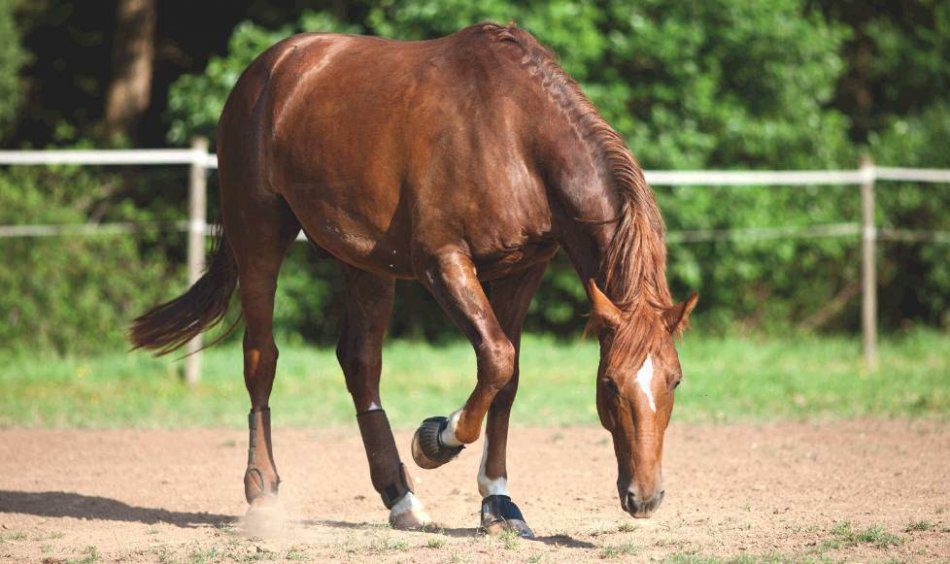 In the photo: digging can be a symptom of colic (coprostasis) in a horse
In the photo: digging can be a symptom of colic (coprostasis) in a horse
Treatment of coprostasis and colic attack in horses
- Contact your veterinarian as soon as possible and strictly follow his recommendations!
- Warm water enemas (darmtamponator is used).
- Laxatives: vegetable or vaseline oil (300 – 700 ml) with hot water (2 times more) and table salt (1 handful).
- Anti-fermentation agents (for example, ftalazol).
- Subcutaneously – caffeine or camphor.
- Subsequent diet in the form of meadow soft hay, green fodder and root crops.
Prevention of coprostasis and colic attacks in horses
- The introduction of succulent feed in the diet.
- Limitation of fiber-rich, coarse and indigestible food.
- Regular feeding and watering.
- Active exercise every day.
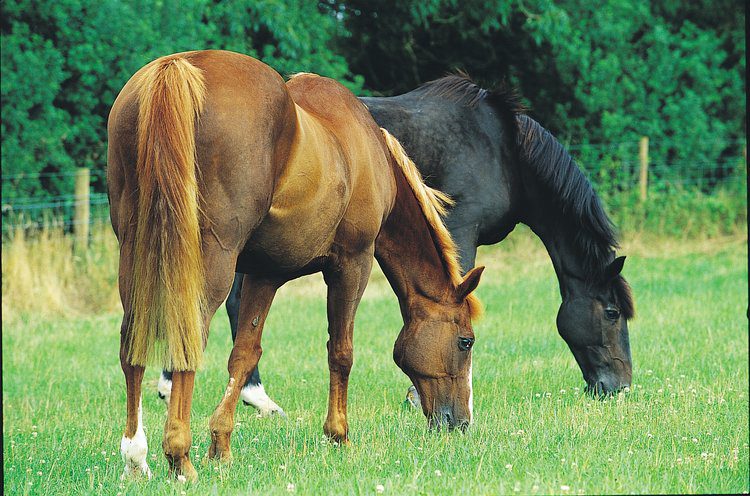 In the photo: the correct feeding regimen for a horse is one of the ways to prevent colic (coprostasis) in horses
In the photo: the correct feeding regimen for a horse is one of the ways to prevent colic (coprostasis) in horses




